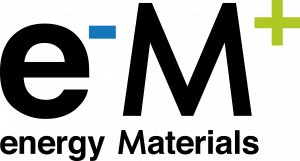There are currently several positions available (PhD student, Postdoc, Master/Bachelor). Contact us for more information. We are also encouraging applicants seeking a host for their research scholarship.
Send your eMail application to: volker.presser@leibniz-inm.de
A guide to a successful initiative application
- Do not send DOC or DOCX files; only send a PDF file (virus concerns)
- Do not send multiple files; only send one attachment (max. 15 MB)
- Do not provide any incorrect or misleading statements
- Highlight 3-5 of your key publications: why are they relevant? what was your contribution?
- Explain why you want to work at INM / our team / this topic
- Provide at least one (better: two) letters of recommendation
- Outline what you bring to our team (topic, skills, etc.)
- Certify your English skills (e.g., TOEFL > 100)
- Generic “respected Sir” emails will not be considered.
- We value diversity and we encourage individuals self-identifying as a member of a minority group to apply.
- It is particularly important to us that our diversity in ethnicity, religious and political beliefs, sexual orientation, and gender is respected by each group member (present + future).
- Your application documents will be deleted after 6 months in alignment with German data protection regulations.
- We are often unable to respond to each individual application considering the large number of application submission. Rest assured: all incoming applications are considered. We often can only reply to those individuals with who we seek to set up an appointment for an interview. Interviews are, these days, most commonly done via ZOOM.
A guide to an informative and successful CV
- Different communities (physics, chemistry, etc.) and different countries (US / Germany etc.) have different traditions and legal frameworks for applications. Since we are in Germany, please familiarize yourself with the German CV.
- Some information is absolutely necessary: your name, contact information, degree(s) (such as M.Sc., Ph.D., Diploma), past workplace(s) and topic(s), current workplace and topic, accomplishments (papers, talks, awards, contribution to science, outreach, etc.).
- Some information is often provided in CVs in Germany but purely optional: age, religious denomination, place of birth, gender, marital status, and a portrait picture. These data were common in the past but not at all needed or recommended to include in an application of this day and age.
- While your life-age is of no relevance to the success of an application, your experience-age is of high interest to us. Make sure you specify how many years of experience you have (as a student, as a Postdoc, etc. / whatever applies).
- Give priority towards “narrating CVs”, where you talk about your contributions to science and impress us by your bio rather than just by a few (possibly misleading) metrics. If you do not know about modern CV types, you may want to read up on it via this recommended sites: Link to an article with Nature / Biosketch Template
- A bit more traditional, but EU-wide accepted, you can also create your CV in alignment with Europass

